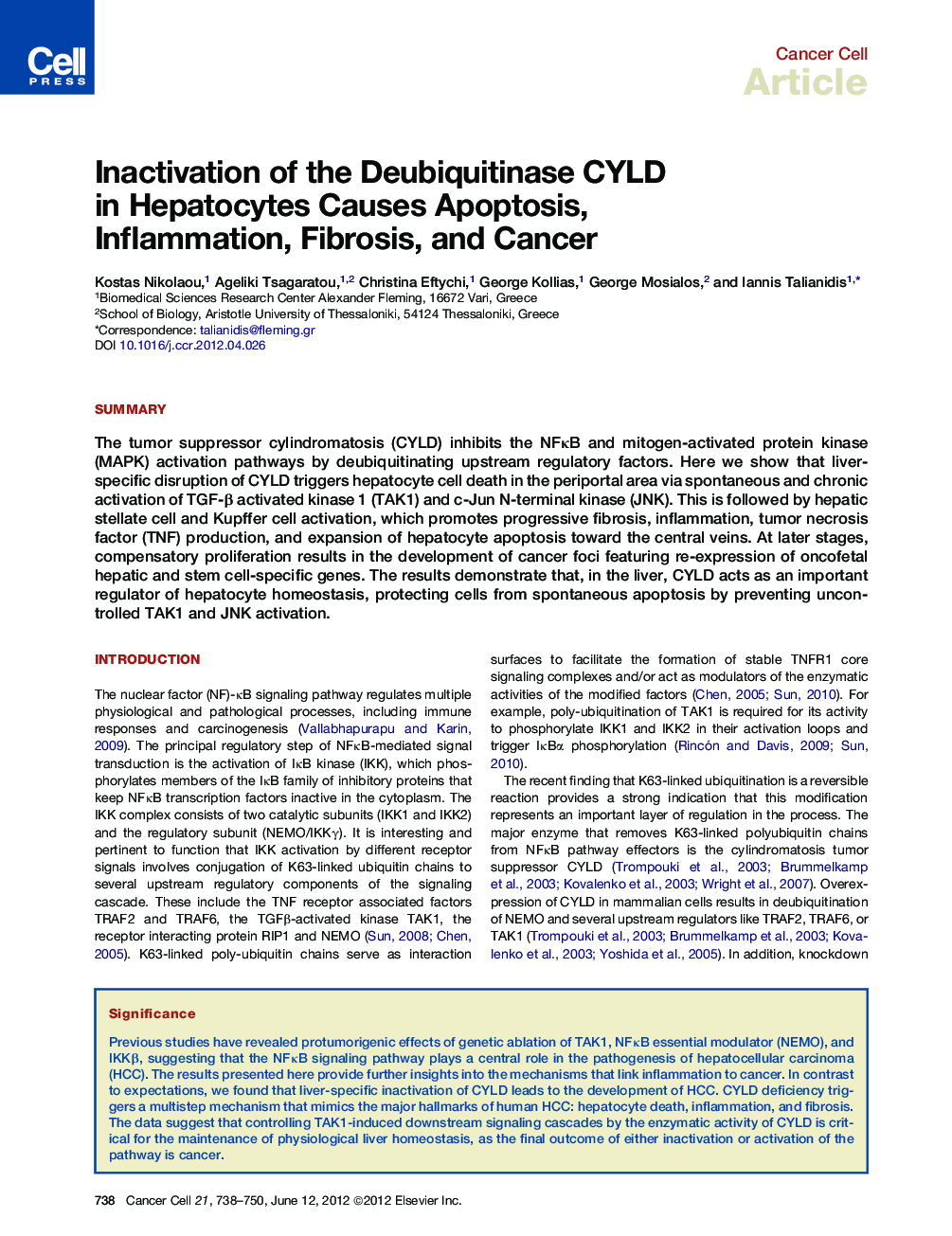| Article ID | Journal | Published Year | Pages | File Type |
|---|---|---|---|---|
| 2107354 | Cancer Cell | 2012 | 13 Pages |
SummaryThe tumor suppressor cylindromatosis (CYLD) inhibits the NFκB and mitogen-activated protein kinase (MAPK) activation pathways by deubiquitinating upstream regulatory factors. Here we show that liver-specific disruption of CYLD triggers hepatocyte cell death in the periportal area via spontaneous and chronic activation of TGF-β activated kinase 1 (TAK1) and c-Jun N-terminal kinase (JNK). This is followed by hepatic stellate cell and Kupffer cell activation, which promotes progressive fibrosis, inflammation, tumor necrosis factor (TNF) production, and expansion of hepatocyte apoptosis toward the central veins. At later stages, compensatory proliferation results in the development of cancer foci featuring re-expression of oncofetal hepatic and stem cell-specific genes. The results demonstrate that, in the liver, CYLD acts as an important regulator of hepatocyte homeostasis, protecting cells from spontaneous apoptosis by preventing uncontrolled TAK1 and JNK activation.
► CYLD inactivation in liver causes spontaneous activation of TAK1 and JNK ► CYLD deficiency leads to periportal hepatocyte death, fibrosis, and inflammation ► Initial apoptosis in CYLD-deficient livers expands over time in a TNFR-dependent manner ► Compensatory proliferation in CYLD-deficient livers leads to late onset HCC
